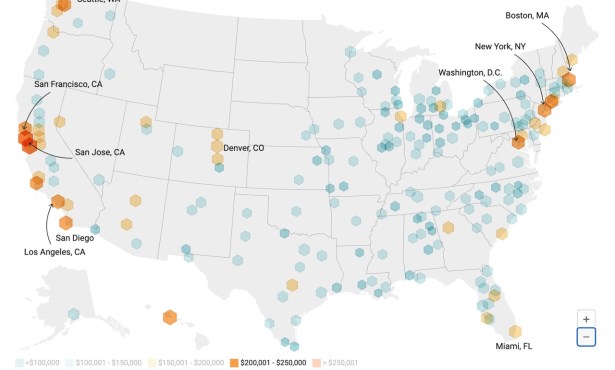How to Pick a President
Panel of UCSB Professors Sift Through Campaign Fluff During October 23 Campus Forum
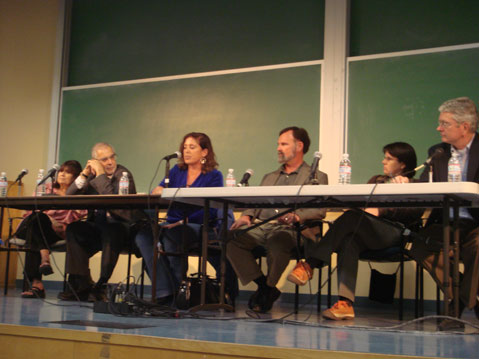
In an effort to “cut through the rhetoric” of the presidential race, UCSB Associated Students put six professors on the stage of Embarcadero Hall last week to explain how the candidates’ platforms actually stack up. The event, titled “Picking a President: How to Make Sense of Your Vote,” was the project of Student Honors Coordinator Scott McDonald, a UCSB senior.
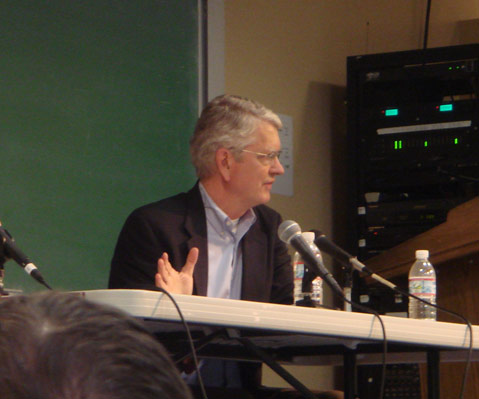
Political science professor John Woolley moderated what turned out to be a candid, though mostly even-tempered, discussion of the candidates’ policies on issues including offshore drilling, healthcare, and foreign policy. Woolley stressed the importance of this particular contest, citing the conflicts in Iraq and Afghanistan, the “remarkably” unpopular exiting administration, and the current economic struggle. “Not since the Great Depression have we had an election in the midst of such a massive economic crisis,” he said.
Fittingly, several of the panelists made points related to the national economy. Kelly Bedard, a professor of economics, noted somewhat bluntly that the choice between Barack Obama and John McCain on health care is a choice between “silly” and “sillier.” McCain’s plan to give out tax credits and let the market take care of itself, she said, would do little to extend health coverage to more people. On Obama’s plan to create a public health-care system, she expressed concern about the feasibility of such a project. “The fundamental problem with this plan is, ‘How on earth are we going to pay for it?'” she said.
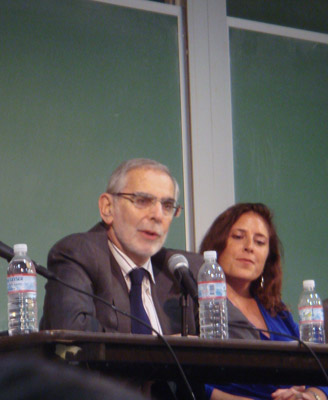
Several panelists noted the similarities between McCain and Obama, such as their shared belief in “American exceptionalism,” the idea that the U.S. should be the prominent leader in the world. Professor Benjamin Cohen said the difference is in what kind of leader America would be under the two possible presidents. According to him, McCain would use “hard power” – which centers on military strength, economic sanctions, and unilateralism – and Obama would use “soft power,” which involves leadership by example, diplomacy, and multilateralism.
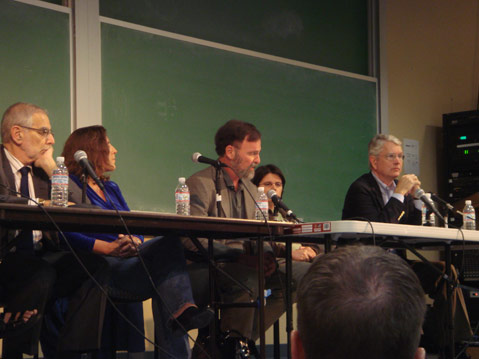
Professor Eric Smith argued that, on environmental issues, the candidates are “not that far apart” because they both support offshore drilling and the expansion of nuclear power. Obama, however, plans to put toward alternative energy 10 times the amount of funding John McCain plans to give, Smith said. “McCain has been going around saying, ‘We can drill our way out of it,'” he explained. “That’s just sheer nonsense.” Looking from the other side, he also argued that it is probably more efficient and environmentally friendly for the U.S. to produce domestic oil than to drill in other countries.
None of the panelists expressed much support for McCain’s policies, though some of the support for Obama seemed lukewarm, particularly from Professor Lisa Hajjar, who said McCain and Obama’s policies on the Middle East were both “categorically wrong.” She expressed hesitance at Obama’s “hawkishness” and insistence on a military solution to the situation in Afghanistan. “There is no military solution, and sending more U.S. troops to Afghanistan would be a terrible, terrible mistake,” she said.
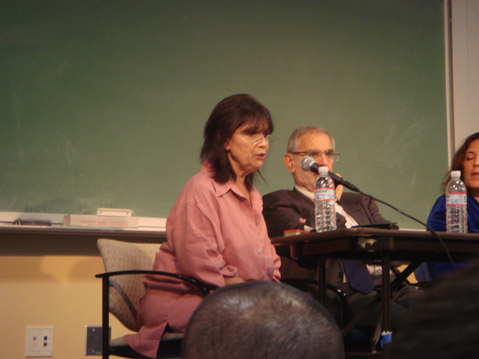
The focus of the discussion at times veered from the intricacies of candidates’ platforms to the social significance of the election with regard to gender and race dynamics. Professor Gayle Binion described the treatment of Sarah Palin by Democrats and the press as “inverted sexism,” saying that TV news interviews have been especially “softball.” On the other hand, she also noted the press’s recent scrutiny of the Alaska governor’s wardrobe.
Thought the issues discussed are all imbued in controversy, anyone in the audience who expected much heated debate between the intellectuals on stage might have been disappointed. What the professors seemed to agree upon most was the important and historic nature of the election at hand.
“It’s trite but very true to say in any presidential election year that there’s a lot at stake; but this year, certainly : this is very true,” Woolley said. “This year’s election seems to have the potential to remake policy and politics in the U.S. for years to come. So we all need to be concerned and involved.”

